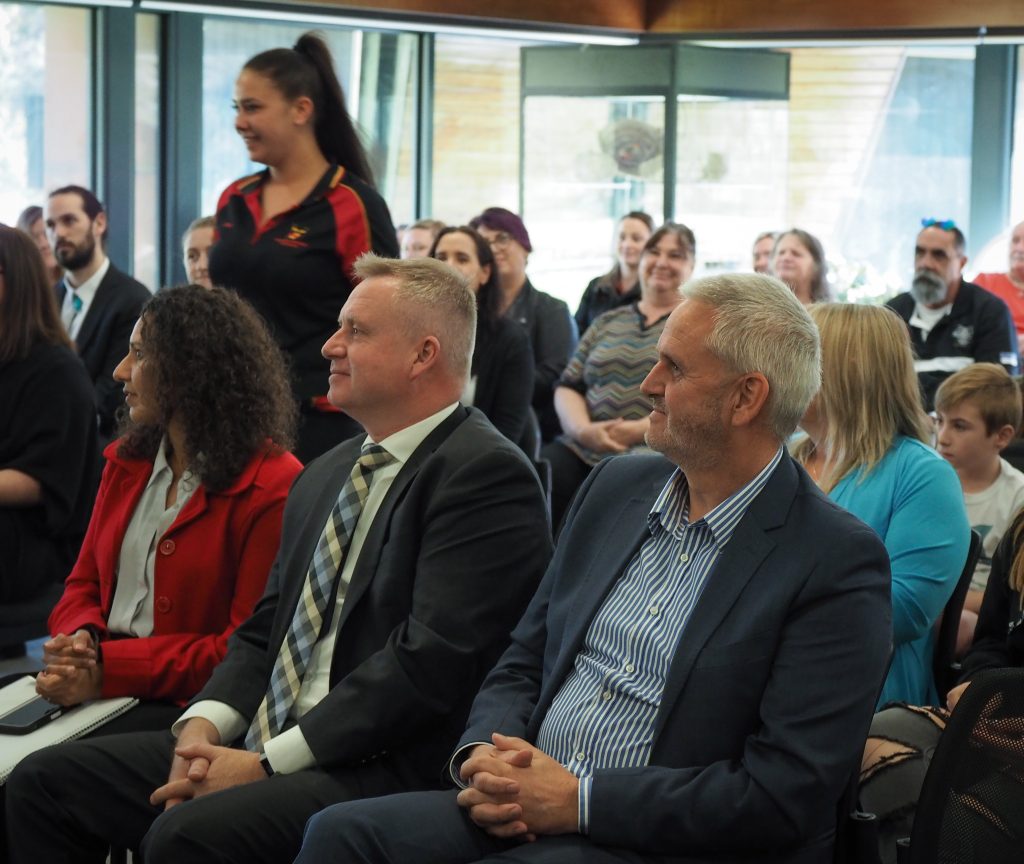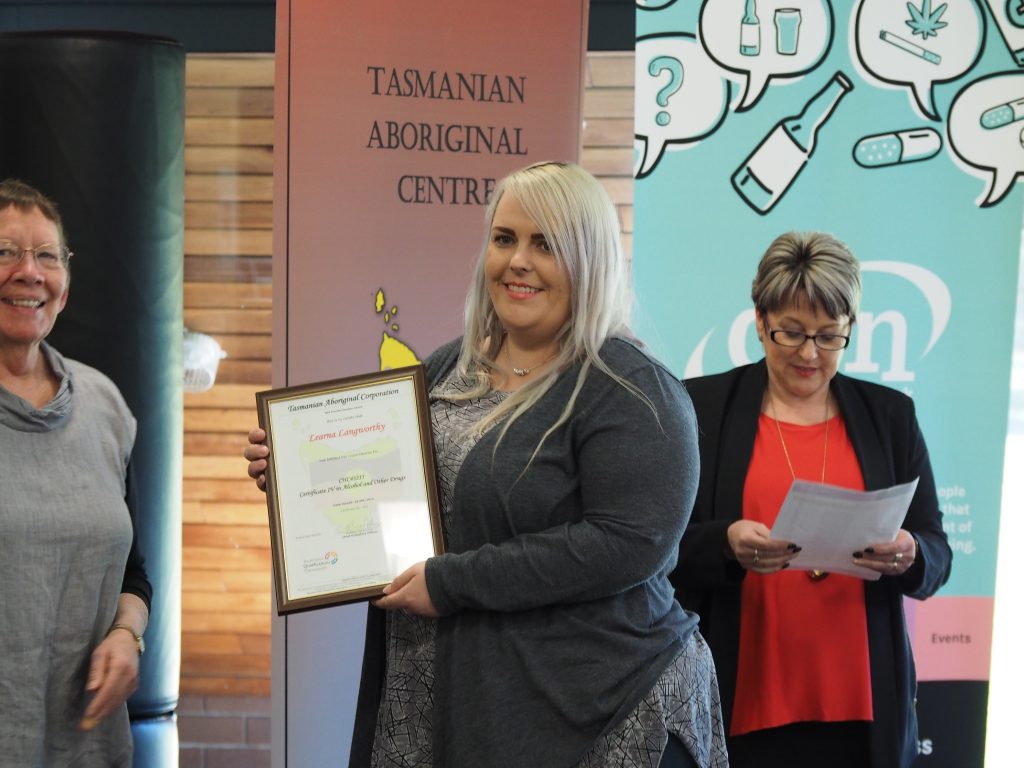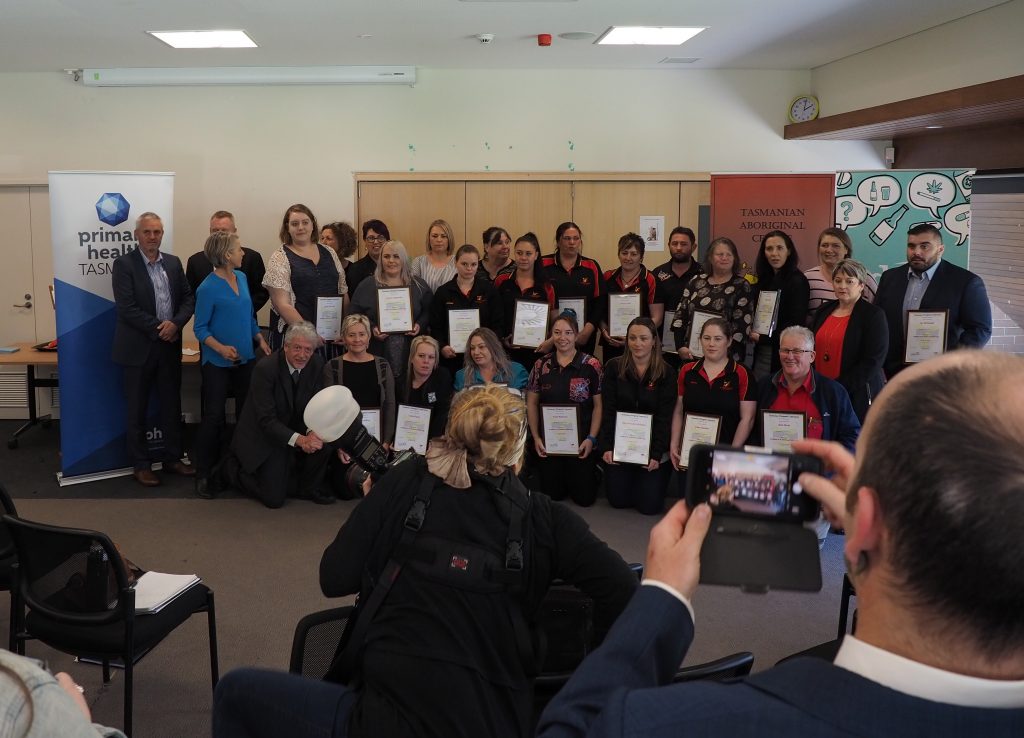Celebrating wungana makuminya
Posted on September 19, 2019

Twenty-six Tasmanians have earned qualifications through a statewide training program supported by Primary Health Tasmania, and aimed at building the capacity of the local drug and alcohol treatment sector to provide safe and appropriate care to Aboriginal and Torres Strait Islander people.
The Drug Education Network (DEN) collaborated closely with the Tasmanian Aboriginal Centre to deliver the training – known as the wungana makuminya (meaning ‘creating or changing a path’) program – across Tasmania.
Unveiled in September 2017, the program aims to build the capacity of the local drug and alcohol treatment sector by allowing participants to study and complete a Certificate IV in Alcohol and Other Drugs.
On Thursday, many of the course participants gathered with colleagues, family, friends and other supporters to receive their graduation certificates.
Primary Health Tasmania CEO Phil Edmondson said the program had significantly exceeded its initial targets, while also garnering nominations for two national awards.
“Primary Health Tasmania always tries to work in partnership,” he said of the multi-organisation collaboration behind the program.
“This has been a great partnership.”

The next step, he told graduates, would be to take their new skills and knowledge, and use it to help improve health outcomes on a local level.
“Being able to see measurable improvements in health outcomes for the community is definitely the longer term objective for this work, so the challenge starts now,” he said.
DEN CEO Shirleyann Varney said an unintended, but very welcome, outcome of the program was that many of the graduates had expressed a strong interest in pursuing further, higher-level studies.
Deputy Premier Jeremy Rockliff also took part in the ceremony, telling the audience the event chimed with both his mental health and wellbeing, and education and training portfolios.
“We know that members of our Aboriginal community are more likely to access healthcare services and also, very importantly, feel safe in doing so when members of their own community are included as part of the staff,” the minister said.
You can read more about the program in the November 2018 issue of Primary Health Matters.

